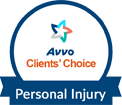When you are in pain after a severe bus accident caused by another person's negligence, winning your case could mean the world to you. Successful personal injury lawsuits will provide financial relief to compensate for lost income, medical bills, surgeries, disability, loss of life enjoyment, among other damages that have compromised the stability and quality of life.
However, winning a case is not as simple as it seems. There are a few things you must do to assist leverage accusations in your case as well as prove liability. Discussed in the article below are guidelines prepared by The Personal Injury Attorney Law Firm in California. Complying with these guidelines will help you stand a better chance of winning your claim and receive fair compensation.
Seek Medical Care and Cooperate with Your Doctor
Seek medical care from a qualified doctor immediately after the bus accident, even if your injury is minor. Get and follow the treatment recommendations from all physicians who treat you. Don't discontinue the treatment until the doctors advise you to do so. Also, don't take any break from the treatment.
Failing to do any of the above offers the insurance firm a chance to claim you weren't injured, or your injuries weren't serious, or that you prolonged or aggravated the injuries by failing to adhere to the recommended treatment.
Be Detailed About Your Injury
Make sure you are descriptive and candid when explaining symptoms of your injury to your doctor. It will not only help in making an accurate diagnosis but also the value of the claim for physical pain and suffering. For instance, if you tore your knee ligament, you can tell your physician of the burning sensation which comes and goes. That way, the physician can describe how the injury has negatively affected your life.
Gathering Evidence
When you suffer an injury that requires filing a case to claim compensation, it is essential to know the different kinds of evidence that are useful and relevant in the claim.
Physical Evidence
Sometimes liability in a bus accident can be proved using a shred of physical evidence (with a tangible substance), as opposed to an account of what took place. A perfect example is a dent in the bus showing where the bus was hit.
Also, physical evidence might prove the extent and nature of the injuries suffered. Damage to the bus can show the seriousness of the impact, while bloodied or torn clothes can demonstrate a physical injury dramatically.
Physical proof that isn't photographed or preserved immediately after the bus accident can get lost, destroyed, repaired, or modified by weather or time. Therefore, all physical evidence must be preserved as it is during the accident.
Return to the Scene of the Accident
You may go back to the scene of the accident as soon as possible to look for evidence and take photographs of any condition you think could have caused the bus accident. You might be surprised to learn something you did not know when the crash occurred that could assist explain what took place like malfunctioning traffic lights.
Take as many photos of the scene from different angles as possible.
While in the scene, you might find a witness who saw what took place or is aware of other bus accidents that occurred in the same area.
Evidence Your Injuries
Photos of the injury sustained can also assist in proving the degree of damage. Detailed pictures of burns, lacerations, and bruising assist in telling the story of the pain.
Without a doubt, medical records play a huge role in establishing the degree of injuries and the amount of compensation you ought to seek. Consequently, seek medical care from a competent physician for your bus accident injuries.
Additionally, the kind of medical attention you receive is essential, and the at-fault party will ask for the medical records. As a result, it is vital to visit a physician and follow all treatment recommendations, primarily referrals to other doctors. Remember, your injury and medical expenses form the basis of the value of the claim.
Preserving Evidence
After you have the necessary evidence to present to your lawyer and the court, you should retain your proof. Videos and photos may need a backup like a flash drive. While physical proof should be kept in an area away from tampering. You should also take witness statements immediately.
How a Personal Injury Attorney Can Assist You Win Your Case
If you were involved in a bus accident, you could be wondering how a personal injury attorney can assist you or whether it is wise to handle the insurer and settle your claim on your own. While it hinges on the complexity and specifics of the case, your attorney will:
Communicate with the At-fault Party's Insurance Company
Any qualified lawyer will start communicating with the defendant's insurance adjuster. The insurance adjuster has a pocketbook. Consequently, it is paramount that your lawyer has a relationship and communicates with the insurance adjuster.
Collecting Relevant Liability Evidence
A competent personal injury lawyer leaves no stone unturned as far as collecting liability evidence is concerned. Even though you could have taken pictures of the scene of the accident, your attorney might return to the accident scene themselves to see how it looks.
Moreover, the attorney will ensure they collect all accident reports and will maintain constant communication with witnesses and the police.
Collect Proof for Damages
It is essential to collect all documentation linked to your injury. However, it is not easy to get medical bills and records from health providers. Technically, the medical records are yours, and you are entitled to them, but it is not the doctor's priority to send the medical records to you or your lawyer.
Small health facilities may not have time or adequate staffing to respond to your record request timely. Large hospitals, on the other hand, may have procedures that should be followed.
Then, after the health facility responds to your request, the medical records could be incomplete. A qualified attorney will tell you that they have to request the records more than once.
It could also turn out that your physician didn't use words to prognosis, disability, and causation in their notes. To win your case, you should prove through medical proof what your injuries, physical limitation, or disability is, and that is due to the at-fault party's negligence.
If your doctor did not mention the degree and causation of your injury, your lawyer should write to them and request a letter. The letter should give an opinion that the bus crash led to your injuries, and you'll be disabled or hindered for a while.
Negotiating the Settlement
Moreover, your attorney will negotiate the settlement. Negotiation is hard work, and it requires specific skills. An attorney is far better than you at settling the case. It is because the attorney knows:
- How to collect evidence
- How much your case is worth
- Negotiates so that you get a fair compensation
Be Honest and Cooperate With Your Attorney
You should be honest with your personal injury attorney concerning what took place in the accident. You should also reveal any prior accident, pre-existing injuries, criminal history, work history, and alcohol or substance use challenges. In a personal injury claim, the other motorist's lawyer has the right to inquire about your past.
Consequently, you should reveal all the information, particularly the detail you think could hurt the claim. It helps your lawyer in evaluating the information and working to limit the damage it can cause.
Nevertheless, if your attorney is surprised by such details at trial or in a deposition, it could affect your credibility hence result in you losing the case.
Police Report
If the police come to the accident scene, they will draft an official police report. A police report is a summary of what happened and who caused the accident. Although the police officer did not witness the accident, their opinion of what caused the bus accident is essential evidence. Most insurance companies often want to know what the police think as far as the accident is concerned.
You are entitled to get a copy of the report. There are two ways of getting the report, namely:
- From the law enforcement agency that prepared the police report
- From your insurance claim representative if they have requested the report
Moreover, you are entitled to obtain copies of the report which the other parties have filed with the California Department of Motor Vehicles (DMV). This report may be essential in proving accountability in the accident.
Sometimes the other driver can say one thing in the police report, to the insurance provider, and at the trial and write another in the DMV report. In this case, you can use the report to show the inconsistency of the other party in your claim.
Ensure you have all errors in the police report corrected. If the mistakes are factual such as incorrect insurance or vehicle details, you should revise the police report by showing the investigating officer those details.
Writing a Winning Demand Letter
A demand letter is a centerpiece of your lawsuit negotiation. In the letter, you give an argument concerning your injuries, why the defendant is responsible, the cost of the medical treatment, lost income, and why you're eligible to receive compensation.
Before you start writing the demand letter, analyze the notes you wrote after the accident. They will remind you of the pain experienced, inconvenience, medical treatment, and discomfort. Then focus on the elements below as you write the letter:
Liability
Begin by recounting how the bus accident occurred and why the defendant was liable. In other words, tell where you were and what you were doing before the crash before describing how the bus accident occurred.
Also, mention your outside support like a statement from a witness or police report.
Comparative Negligence
In numerous accidents, there is a question of whether your carelessness caused the bus accident even if the other party was primarily responsible. Even though you think you could have been partially accountable, don't admit fault in the demand letter. It's not your responsibility to make the argument. You can only debate the matter if and when the insurance adjuster brings up the question during negotiations.
Injuries Sustained and Treatment
Do not be shy to describe your injury and the treatment received. Give details about your pain, recovery process length, effects on your everyday life, and permanent injuries or disfiguring.
Avoid being over-dramatic or making things up.
Damages Suffered
Include all medical providers who treated you as well as the cost incurred.
Also, draft a statement of the time you have missed work due to the injury. Refer to a letter from your boss proving the missed time and pay. If you're self-employed, elaborate on how you have reached the lost wages figure.
Settlement Demand Figure
Lastly, demand a given amount of money as compensation for the losses. Demand a figure higher than what the claim is worth. It offers a room for negotiations.
Include Supporting Documents
Alongside the demand letter, send copies of bills and records, among other documents that support what you have described in the letter to the insurance provider. Make sure you keep the original copies.
Negotiating with the Insurance Company
After submitting your demand letter to the insurance provider, it is time to negotiate. The negotiation process consists of phone calls with the insurance adjuster.
Do Not Accept the Initial Offer
During the initial call with the adjuster, both you and the adjuster will make your points concerning the strengths and weaknesses of the claim.
The adjuster will then offer you an amount lower than what you asked in the demand letter. It is a strategy to see if you are aware of what you are doing.
The initial offer could also be reasonable but extremely low. In case the offer is realistic, immediately make a counteroffer, which is lower than the amount in the demand letter. That shows the insurance provider that you are reasonable and willing to find a middle ground. A little negotiation should help you get a satisfactory settlement amount faster than you think.
Let the Insurance Provider Justify the Low Offer
If the insurance adjuster gives a low initial offer, don't immediately reduce the settlement amount you asked in the demand letter. Instead, ask the adjuster to outline reasons why your offer is low. Be sure to note what the adjuster tells you and write a letter replying to the reasons highlighted.
Hinging on the strengths of the reasons highlighted, you may lower the amount a little. However, before reducing the compensation amount, wait to see if the insurance adjuster will move after getting your reply.
When you talk with the insurance adjuster next, start by asking a response to your reply letter. The insurance adjuster ought to now make you a realistic offer upon which you can bargain and reach a fair figure.
In the negotiations, do not go over all the reasons again. Instead, highlight the strongest points that work in your favor.
Put Your Settlement in Writing
Once you and the adjuster have reached an agreement, confirm your understanding in a letter to the insurance adjuster. The letter should be:
- Short and precise
- Include the settlement amount
- State damages and injuries covers
- The date which the insurance provider should send you the settlement documents
Don't Issue Statements or Sign Papers Without Speaking with Your Personal Injury Attorney First
Usually, the adjuster will request you to provide a statement of what took place as well as describe the injury. They will even go-ahead to offer a settlement and ask you to sign a release. You shouldn't do either of these until your attorney reviews your case. Otherwise, you could do something that could ruin your personal injury lawsuit. Or, you could settle the claim for less than the amount you're entitled to, especially if you don't know the strengths of your case and your rights. Also, you could settle the case before you are aware of the full degree of your injury or are completely healed.
Please note after your case closes, you cannot seek more compensation. Therefore, you should have your attorney check if the compensation is fair and full before signing any agreement.
Staying Off Social Media
Being careful not to talk about the bus accident might not be enough to protect you. Posting and commenting on social media networks could be interpreted as proof that you are okay.
The most effective approach is to avoid social media platforms like Instagram, LinkedIn, Twitter, and Facebook if you are planning to file a personal injury claim. If you think status updates and keeping your profile live throughout the process will not affect your case winning, here is why you should keep off:
- The defense attorney and investigating team will study your social media posts for proof, which will assist their clients in paying little or nothing in the claim
- They will also want to see what your family, friends, and acquaintances post about you
- They will use photos of you smiling or engaging in your daily activities or visiting places to prove that your injuries weren't as serious as you claim
File the Personal Injury Claim Immediately
The Statute of limitations sets the limit on the amount of time (deadline) you have to file a claim over the loss suffered. In California, you have two years from the date of the accident to press charges for your injury. If your loved one succumbed to the accident, you have two years from the date of the deceased's death to bring a wrongful death claim against the defendant.
So, what happens if you file your claim after the deadline has expired?
The judge will most likely refuse to listen to the case unless it falls under an exception category, which will pause or extend the statute of limitations’ clock. Additionally, the insurance company will disapprove of your claim and fail to pay out your settlement.
Two years might seem like a long time. Nonetheless, several things should be done before bringing your claim. You need to collect your medical records, which may take time and evidence like witness statements. While some witnesses may refuse to talk about the accident, others are hard to contact. On top of that, you'll want to talk about the case with the insurance provider, and negotiations could take a couple of months. It can take time before filing the claim. Therefore, you need to get started with the process immediately after the accident.
If you have any questions about the statute of limitations, you need to consult a competent personal injury attorney immediately.
Remember to Include Your Future Damages
Your personal injury claim should include both immediate and future losses. It is because you might not have recovered fully from your injuries when your case proceeds to trial. Sometimes future damages might comprise the majority of your losses. Therefore, you need to put into account future recovery when negotiating your settlement amount.
You should work with a medical expert to document the losses as well as include them in the claim.
Avoid Discussing Your Personal Injury Case
Don't discuss the bus accident with any person apart from your physician and attorney. If any person asks you about the case, politely tell them that you have been instructed not to discuss the matter. Instead, refer all inquiries to your proficient personal injury attorney.
Make a Good Impression
The defendant's insurer will make a settlement based on what they think the judge will do at the trial. Judges make decisions based on what they hear and see at trial. Therefore, it is paramount to put your best foot forward.
That means being respectful and polite always as well as looking your best while in court. These small things can assist you in convincing the judge to be empathic about what occurred in the bus accident hence offer you a fair settlement.
Find A Experienced Personal Injury Lawyer Near Me
After suffering injuries in a bus accident, the financial concern is the last thing you need to worry about. To recover fully, you should make sure you have the financial means to do so. It can be realized by taking legal action against the liable party. However, what you do right after the bus accident makes the difference between winning and losing the case. Before filing the lawsuit, contact the legal team at The Personal Injury Attorney Law Firm at 619-625-8707. We can help you take the appropriate steps to strengthen your claim.
 800-492-6718
800-492-6718







